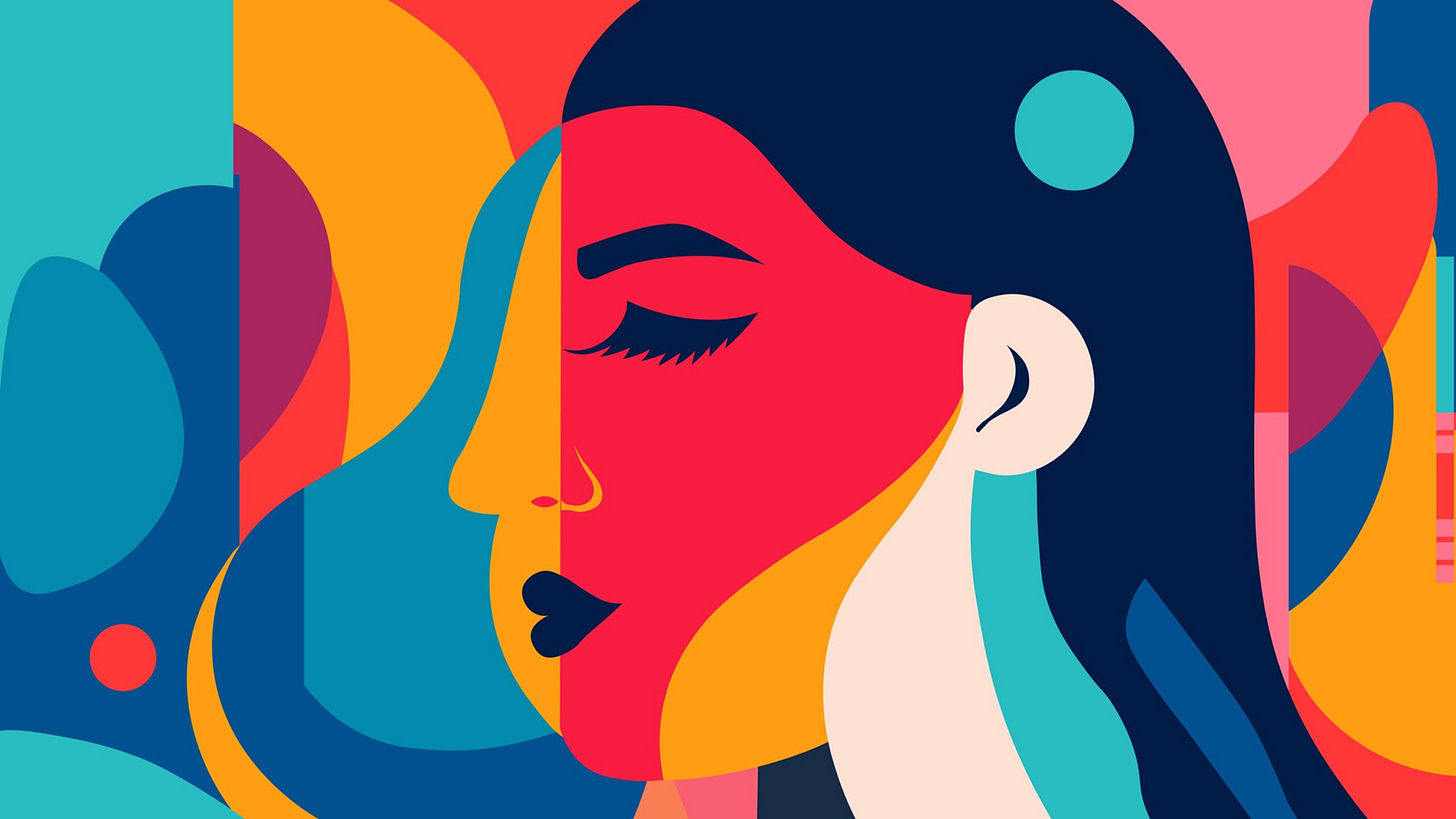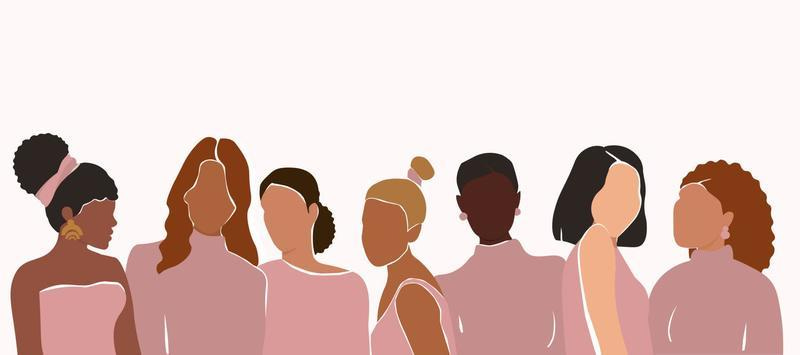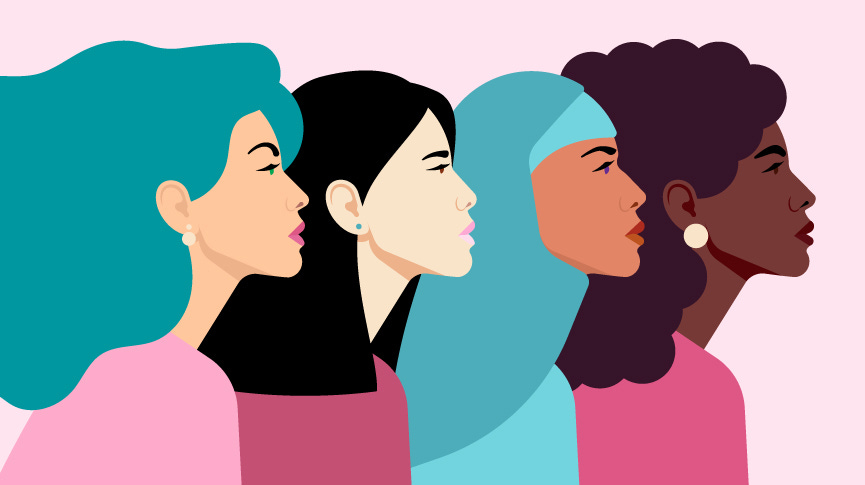Wondering if you're neurodivergent?
I have news for you...
I am increasingly frustrated by people wondering if they're neurodivergent.
Every day I seem to see people on the internet discussing that they might be autistic and/or ADHD—but they’re not sure. They agonize over lists of traits and assessment criteria, but never actually pluck up the courage to speak to their GP.
Today, I want to discuss the hard truth that if you’re not diagnosed, you’re not officially neurodivergent.
I’m not having a go at these people. It didn’t occur to me to speak to a doctor when I was first wondering if I was autistic, and I didn’t mention it to one until I was certain I wanted a referral to a psychiatrist for assessment. I also did my due diligence researching autistic traits and finding examples of women with both autism and ADHD, so I’m not saying you shouldn’t spend time researching.
What I am saying is that at some point, you have to shut the books (or browser) and do something about your (potential) diagnosis. If you know or suspect that you are autistic and/or ADHD but do nothing about it, you will be living in limbo for the rest of your life. I have spoken to several people through Substack and elsewhere online who say they ‘know’ they are neurodivergent, but it’s pretty clear from what they’re posting that they’re not 100% sure. They don’t plan on pursuing diagnosis, but these same people seem to be having an existential crisis every five minutes.
Can they not see that the two are connected? They can’t decide if they meet enough of the criteria for diagnosis (i.e. whether they are ‘autistic enough’) or whether their indecisiveness and scattered brain is ADHD or just part of their personality. It’s possible, but it’s probably ADHD. But you won’t know that for sure unless you’re assessed.
It’s not enough to self-diagnose or spend your life feeling like an imposter because you know (or suspect) you’re neurodivergent but don’t have official validation to prove it. I hate when someone self-diagnoses based on a few facts they found online that are probably incorrect or at best inaccurate… but the thing that really annoys me is when people wonder if they’re neurodivergent but do nothing about it.
I saw a Substack bio not long ago that went like this: autistic son, possibly ADHD daughter, (am I ADHD myself?), husband definitely neurodivergent but undiagnosed… WHO CARES? Seriously, how hard is it to place yourself on a waiting list? If you’re in the UK or US you’ll probably wait a couple of years anyway so you can ruminate as much as you like while you wait. But at least you’ll be making some progress.
There are two hard truths at play here. Firstly, if you’re here and you’re reading this and you wonder if you’re neurodivergent, then I have news for you: you probably are. Second, unless you are formally assessed you can’t possibly know for sure. Forget all this ‘you are the expert on your own life’ nonsense. An experienced clinician can tell you things you didn’t know about yourself. I thought I had a good memory until the psychiatrist pointed out I said I couldn’t remember things unless I wrote them down.
Let’s unpack these hard truths one at a time.
Wondering if you’re neurodivergent? You probably are.
You're here reading this, aren't you? You’re Googling lists of traits and seeing yourself in them, aren’t you? You’re watching YouTube videos and finding content creators who speak like you, think like you, talk like you, act like you, and they happen to be autistic and/or ADHD, aren’t you?
How do I know? I did the same. I once watched a YouTube video where autistic women talked about their thought processes and explained them as if to neurotypicals. I got to the end of the video and thought ‘What are they talking about, being autistic? They seem perfectly normal to me!’ Then it hit me: of course they seemed normal to me, because I thought that way way too—because I am one of them.
Unless you’re formally assessed, you can’t know for sure.
Yes, you can have moments of recognition and realization. Yes, you can measure yourself against assessment criteria and try to diagnose yourself… but you are not a clinician. You are not a psychiatrist, or a psychologist, or a psychotherapist. And the irony is that even if you are, you probably A) received little to no training on neurodivergence (which is why it’s important to see a clinician who is experienced with neurodivergence), or B) miss or misread your own traits due to bias. This is what happened to Stephanie Jones, author of The Autistic Survival Guide to Therapy, who missed her own autism until a client discussed wanting to be assessed.
I hate to break it to you, but until the DSM (Diagnostic Standard Manual) changes, you’re either neurodivergent or you’re not. There’s no room for “Well, everyone is a little bit autistic (or ADHD)…” There’s no middle ground. You either meet the assessment criteria or you don’t. It’s pretty clear-cut.
Of course there are reasons to avoid or delay formal assessment: finances, health issues, being unable to find a health professional you gel with… all of these reasons and more are valid. But I don’t like or agree with the current trend of fence-sitting, or thinking that overthinking will eventually lead to an answer. It won’t. Currently the only ‘legitimate’ way to know if you’re neurodivergent is to be assessed by a qualified mental health professional (preferably one familiar with neurodivergence).
Formal assessment is not a cure-all or the ‘be all and end all’ of your neurodivergence discovery and acceptance journey. You still have work to do after diagnosis. But it might help you to close one chapter and open another, as it did for me. It might help you make reality a future in which you are sure of who you are and accommodate yourself accordingly, because you can be certain that you are indeed neurodivergent.
If you’ve got this far and you're still wondering if you’re neurodivergent, here are some questions for you to think about or journal on:
Do you enjoy consuming neurodivergent content? (this can be books, videos, documentaries, blog posts, etc)
Does your Google search history show a desire to learn about all things autism and/or ADHD? (i.e. are you hyperfixated on learning about neurodivergence?)
Do people who are diagnosed with autism and/or ADHD seem “normal” to you?
Have you scored highly on online tests for autism and/or ADHD?
If you answer ‘yes’ to any of these questions, then you’re probably neurodivergent. But there’s only one way to know for sure—but do you really need me to say that again?
P.S. I am well aware this is a controversial post, but I am here to facilitate conversation and share information, as well as my own opinion. I look forward to discussing in the comments!






"Seriously, how hard is it to place yourself on a waiting list for assessment?"
For some of us, extremely hard because we have been through terribly traumatic experiences at the hands of doctors and GPs. If I had not been able to self refer I would likely still be undiagnosed as the thought of going and speaking to a GP about this filled me with complete dread.
As you have pointed out, there are many barriers to being officially diagnosed, such as the sheer cost of private diagnoses, the vast waitlists. Plus, the continued misunderstanding, in many places, about how autism shows itself in women/AFAB people/BIPOC people, working class people etc.
And some people just aren't ready for that official diagnosis because the assessment can be hard and there is no going back. I, personally, don't want anyone to feel pressured to pursue an diagnosis that they aren't ready for or to feel like they can't talk about their belief that about they are autistic/neurodivergent while they wait.
I don't really understand why it annoys you that others are wondering about being neurodivergent and talking/writing about it. This seems to be the starting point for many late diagnosed people, including myself.
I do agree that an official diagnosis does alleviate imposter syndrome, as that has been my experience too.
Hi , I can be neurodiveegent. I had social anxiety throughout teenage years and very low confidence and self esteem. I was also not able to learn things easily as other kids in school. Took me time to speak confidently in meetings or at workplace.
I never thrived in workplace. Want my own routine and don't want a traditional job. Good with computers and processes. Happy with my husband and baby and don't want many people around.